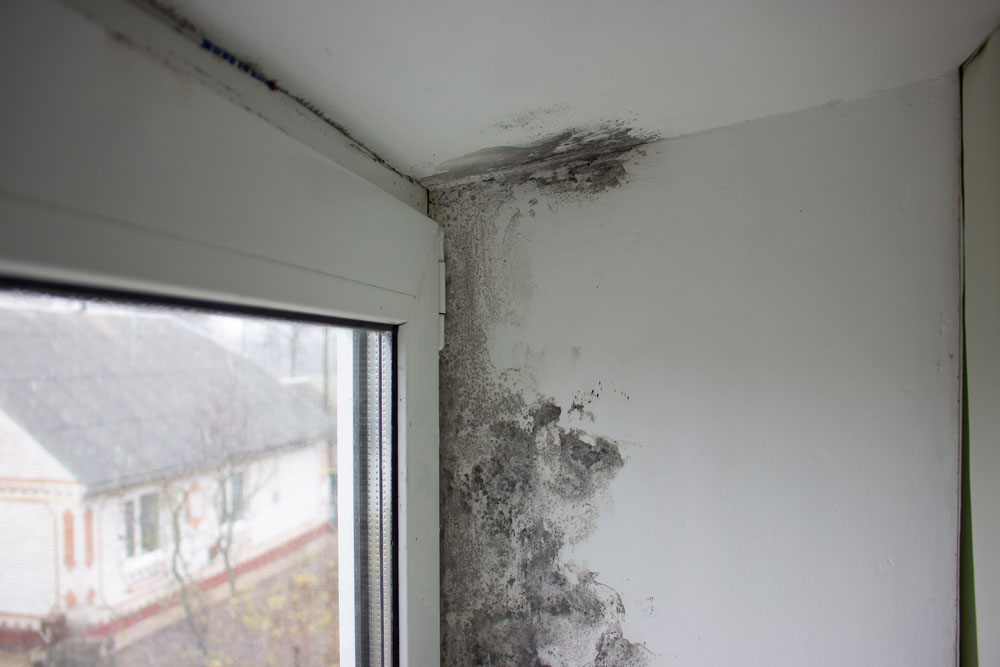How To Clean Mould Off Windows

CONTENTS
- What causes mould to grow on windows?
- Is mould dangerous to be exposed to?
- What to do if mould starts growing on your windows
- The best ways to prevent mould growing on windows
- Book your mould cleaning today
Mould is a common feature of windows and window sills due to their vulnerability to condensation. Even uPVC windows which have become very popular since the 1980s due to their low maintenance and insulation benefits are not immune to mould growth. You must actively take steps to prevent mould on your windows and bring in professionals as soon as you spot it growing in your home.
At ICE Cleaning, our fully qualified mould cleaners can take care of your entire mould problem, no matter where you are in the UK. Our mould removal services consist of a nine-stage treatment process that eliminates all the mould, including mould in the air.
Keep reading to learn more about why mould is growing on your windows and the best way to clean mould off windows.
What causes mould to grow on windows?
Mould thrives in environments with excess moisture and limited ventilation. When it comes to windows, the most common cause of mould growth is condensation build-up. This typically happens when warm indoor air collides with a cold window surface, causing water droplets to form.
The second major factor leading to mould formation around windows is inadequate or failed sealing. Silicone sealants are often used as barriers against moisture infiltration but can degrade over time, letting in moisture.
Improper cleaning methods can contribute towards this issue, too. Using high-moisture cleaners without properly drying the area afterwards leaves behind residual dampness which creates an inviting environment for spores. Failing to regularly remove dust and dirt can provide mould with food, as well, enabling it to grow and spread quickly.
Lastly, damp building materials such as wood frames and plaster walls around your window area could also encourage fungal development if not addressed promptly.
Is mould dangerous to be exposed to?
Mould exposure can pose serious health risks. Mould releases allergens and irritants which may trigger allergic reactions such as sneezing and skin rashes, and asthma attacks in asthmatics. People with pre-existing respiratory conditions or a weakened immune system, or the very young or elderly are particularly vulnerable to mould exposure.
Some types of mould also produce toxic substances known as mycotoxins which can cause more serious illnesses. If inhaled for a long time, they can be fatal, such as causing serious asthma attacks and neurological disorders.
Over time, the unsightly mould could spread across your property including to blinds and curtains, and nearby walls. Mould feeds off organic material so certain surfaces and building materials could deteriorate. This can even result in structural damage.
What to do if mould starts growing on your windows
Mould growth on your windows is a pressing issue that you should not tackle yourself. Cleaning mould off windows is tricky as mould is stubborn and can be hazardous due to the harmful substances it releases. Without personal protective equipment, you will be much more likely to touch and inhale the mould spores, and experience health problems as a result.
DIY mould removers and hacks are usually not that effective either, such as bleach and vinegar. The incorrect cleaning method could even make the situation worse. Silicone sealant, for instance, is delicate and can get damaged by rough scrubbing. You can learn more about removing mould from sealant in this blog.
Trying to clean mould by yourself could encourage spores to spread throughout your property, as well, exacerbating the problem instead of solving it.
Professionals have the training and specialist gear to eliminate all the mould in your home. They can clean mould off window frames, diagnose the cause of the mould growth in your home, and make sure that future occurrences are minimised by advising you on maintaining an environment unfavourable for mould growth.
The best ways to prevent mould growing on windows
Mould prevention starts with reducing moisture levels around your windows. Good ventilation is key, so make sure you open them regularly. Try and open windows on opposite sides of the property to encourage good air flow.
Using a dehumidifier can help maintain optimal humidity levels and stop condensation forming on the window panes. This prevents the damp conditions that encourage mould growth.
Cleaning your windows frequently also helps prevent build-up of organic material like dust and dead insects where mould can thrive.
Proper insulation reduces temperature differences between indoors and outdoors surfaces, as well, thus minimising condensation formation. Make sure there are no gaps or cracks in window seals because these provide perfect breeding grounds for spores to multiply rapidly, too.
Keep the property warm to reduce the chances of condensation. Try and ensure the property's temperature does not fall below 14 degrees Celcius. You can find out more about how to prevent mould forming on windows in this blog.
Book your mould cleaning today
Our technicians have been accredited by Dewpoint Professional and can give you peace of mind that your mould issue will be entirely eradicated.
Get in touch today by calling 0208 066 0360 or sending an email to enquiries@icecleaning.co.uk to get a free site survey and no-obligation quote for our mould cleaning services.

Speak with me today,
I’m here to help
By asking you a few questions either via phone or email I can immediately provide a realistic estimation of the cost.
You’re in good company. We’ve cleaned for the following commercial clients… View all

Why choose us?
- Cater to a wide variety of cleaning situations
- Nationwide coverage, available 24/7
- Cater to commercial and domestic clients
- Free survey provided prior to quotation
- Emergency response team
- Offer a bespoke service designed to suit all your needs
- All technicians hold professional health and safety qualifications, including BICSc, IOSH, Dewpoint Professional & Safe Contractor
We’re fully accredited
We place best practise, professional expertise and health and safety at the core of our business. We’re fully compliant with all legal obligations. You can view a list of our accreditations below, or visit our Health & Safety page for more information.











-RGB-small.1707319151.jpg)




















